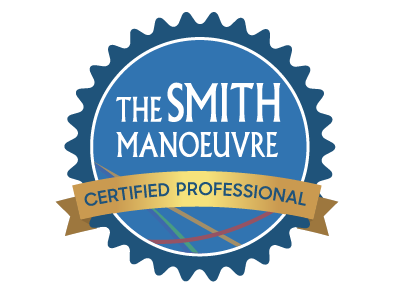Cashback Mortgage Financing
As the name implies, a cashback mortgage is similar to a standard mortgage, except that you receive a lump sum of cash upon closing. This lump sum will either be a fixed amount of money or a percentage of the mortgage amount, usually between 1-7%, depending on the mortgage term selected.
How you use the cash is entirely up to you. Some of the most common reasons to secure a cashback mortgage are to:
- Cover closing costs.
- Buy new furniture.
- Renovate your property.
- Supplement cashflow.
- Consolidate higher-interest debt.
Really, you can use the cash for anything you like. It’s tax-free and paid to you directly once the mortgage closes.
Understanding the cost of a cashback mortgage.
Now, while it might appear like a cashback mortgage is a great way to get some free money, it’s not. Banks aren’t altruistic; they’re in the business of making money by lending money. Securing a mortgage that provides you with cash back at closing will cost you a higher interest rate over your mortgage term.
A cashback mortgage is like getting a fixed loan rolled into your mortgage. Your interest rate is increased to cover the additional funds being lent.
Now, with so many different cashback options available and with interest rates constantly changing, it's nearly impossible to run through specific calculations on a simple article to outline how much more you’d pay over the term. So, if you'd like to identify the true cost of securing a cashback mortgage, the best place to start is to discuss your financial situation with an independent mortgage professional.
When you work with an independent mortgage professional instead of a single bank, you receive unbiased advice, more financing options, and a clear picture of the cost associated with securing a mortgage.
Getting cashback at closing is a mortgage feature that makes the bank more money at your expense. This isn’t necessarily a bad thing; the key is to be informed of the costs involved so you can make a good decision.
Eligibility for a cashback mortgage.
Simply put, a cashback mortgage isn’t for everyone. This is a mortgage product that has tougher qualifications than standard mortgage financing. Any lender willing to offer a cashback mortgage will want to see that you have stable employment, a fabulous credit score, and healthy debt service ratios. If your mortgage application is in any way “unique,” the chances of qualifying for a cashback mortgage are pretty slim.
Breaking your mortgage term early.
In addition to paying a higher interest rate to cover the cost of receiving the cashback at closing, a cashback mortgage also limits your options down the line.
If your life circumstances change and you need to break your mortgage mid-term, depending on the conditions set out in your mortgage contract, you’ll most likely be required to either pay all of the cashback received or at least a portion, depending on how long you’ve had the mortgage.
As all cashback mortgages are tied to fixed-rate terms, so in addition to repaying the cashback, you’d also be required to pay the interest rate differential penalty; or 3 months interest, whichever is greater for breaking your mortgage term early.
Sufficed to say, should you need to pay out your mortgage early, breaking your cashback mortgage will be costly. Certainly, this is something to consider when assessing the suitability of this mortgage product.
Get independent mortgage advice.
Understanding the intricacies of mortgage financing can be difficult at the best of times. With all the different terms, rates, and mortgage products available, it’s hard to know which mortgage is best for you.
So while a mortgage that offers a cash incentive upon closing might initially seem like an attractive offer, make sure you seek out the guidance of an independent mortgage professional to help you navigate the costs associated with a cashback mortgage. While it might be a great option for you, there might be other mortgage options that better suit your needs. It's worth a conversation for sure!
If you’d like to discuss what a cashback mortgage or any other mortgage product would look like for you, please get in touch. It would be a pleasure to work with you.






